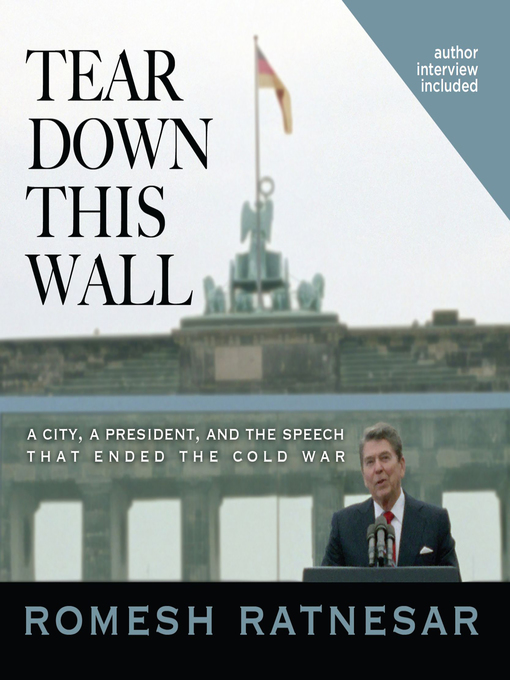
When the Second World War ended with the defeat of Germany, the country was separated into four zones of control. On the Western side, the zones quickly coalesced together to form the Federal Republic of Germany, whereas the Eastern side, controlled by the Soviet Union, a puppet Communist government was enshrined as the Democratic Republic of Germany (GDR). Dividing the two was an iron curtain stretching from the Baltic Sea to the Black Sea. The city of Berlin was similarly separated, even though it was deep in the center of the GDR. In 1961, hoping the stem the flow of people from East to West Berlin and thence to Western Europe, the East German security apparatus erected a wall, cutting the city in half. The Berlin Wall became the deadly and ugly symbol of division between East and West.
In 1987, U.S. President Ronald Reagan visited Berlin for the second time of his Presidency, and he pronounced a speech in front of the Berlin Wall that stood just before the Branderburg Gate in which he bemoaned the separation of people and dared Secretary General of the Soviet Union, Mikhail Gorbachev, to tear down the wall and allow people to freely travel. This speech, which was little noted at the time, proved prophetic as the Berlin Wall fell two and a half years later.
Tear Down This Wall is a historical account of the division of Germany, the life and times of Reagan and Gorbachev, the Cold War confrontation between Americans and Russians, and the origins, pronouncement, and impact that the speech had on world history. The audiobook contains the actual speech given by Reagan, as well as extensive interviews with government officials in the Reagan administration as well as American, Russian, and German eyewitnesses to this event.
Fans of history will appreciate the impact the speech had in retrospect on the events that occurred leading to and during the fall of the Berlin Wall, and will develop a newfound respect for collaboration and trust that the two adversaries developed. It is this, more than anything else, that helped both of them "win" the Cold War and avoid the world's destruction, which had seem so plausible a year or two earlier.

No comments:
Post a Comment